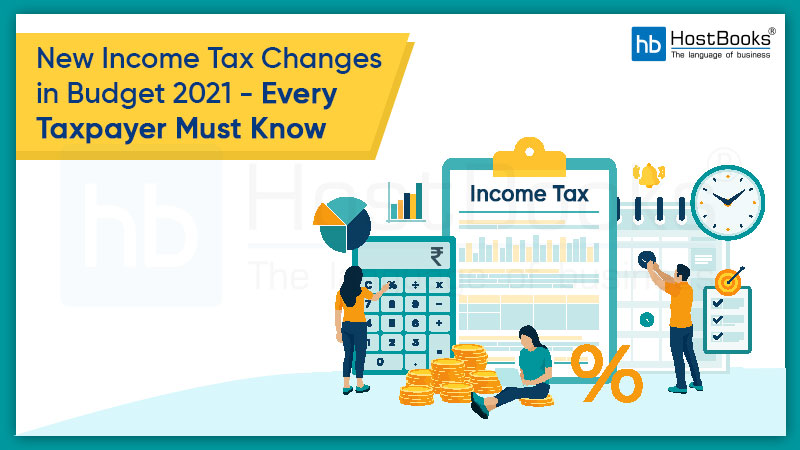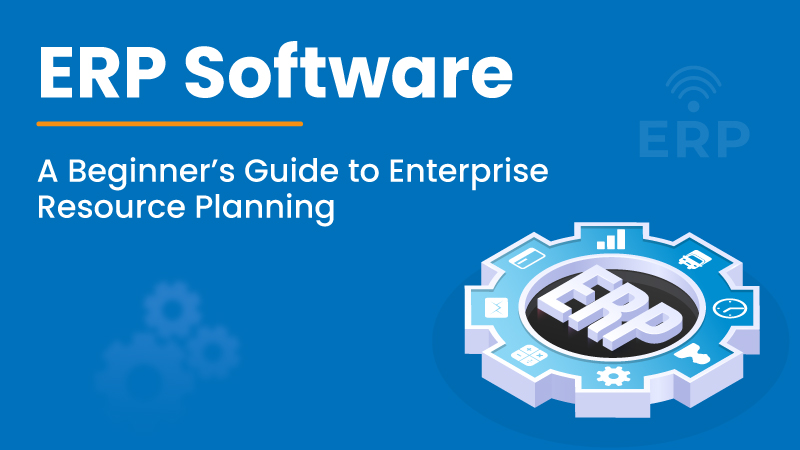New Income Tax Changes in Budget 2021 – Every Taxpayer Must Know

The new financial year 2021-22 is starting from April 1, 2021. It's that time when your investment comes again to the forefront. The investment receipts are all out. Your inbox is full of emails pushing you to claim your tax-saving investments and most of us are once again struggling to check if our investments are plentiful or not. If we particularly focus on the income tax, Honourable Finance Minister Nirmala Sitharaman added some tweaks in income tax law in the Union Budget 2021 that are essential to know for every individual taxpayer.
As we all know that the income tax returns must be filed by every eligible taxpayers under the norms & regulations. In the last year’s budget, Finance Minister Nirmala Sitharaman tried to put more money in the hands of taxpayers by curtailing the incentives to save taxes.
Apart from the slab rates in existing tax regime, Honourable finance minister had introduced new income tax slab rates under alternate tax regime as new tax structure for every individual in Union Budget 2020 that was as follow:-
Income Tax slab rates under Alternate tax regime for Individual and HUF:
|
Income Tax Slab |
Tax Rate
|
|
Up to Rs.2.5 lakh |
Nil
|
|
From Rs.2,50,001 to Rs.5,00,000 |
5% of the total income that is more than Rs.2.5 lakh
|
|
From Rs.5,00,001 to Rs.7,50,000 |
10% of the total income that is more than Rs.5 lakh
|
|
From Rs.7,50,001 to Rs.10,00,000 |
15% of the total income that is more than Rs.7.5 lakh
|
|
From Rs.10,00,001 to Rs.12,50,000 |
20% of the total income that is more than Rs.10 lakh |
|
From Rs.12,50,001 to Rs.15,00,000 |
25% of the total income that is more than Rs.12.5 lakh
|
|
Income above Rs.15,00,001 |
30% of the total income that is more than Rs.15 lakh
|
Surcharge:
a) 10% of Income tax where total income exceeds Rs.50 lakh
b) 15% of Income tax where total income exceeds Rs.1 crore
c) 25% of Income tax where total income exceeds Rs.2 crore
d) 37% of Income tax where total income exceeds Rs.5 crore
Note: Enhanced Surcharge rate (25% or 37%) is not applicable in case of specified incomes I.e. short-term capital gain u/s 111A, long-term capital gain u/s 112A & short-term or long-term capital gain u/s 115AD(1)(b).
Education cess: 4% of income tax plus surcharge
Note: A resident or Resident but not Ordinarily Resident individual is entitled to rebate under section 87A if his total income does not exceed Rs. 5, 00,000. The amount of rebate shall be 100% of income-tax or Rs. 12,500, whichever is less. Rebate under section 87A is available in both scheme i.e. existing scheme as well as new scheme.
These tax slabs come into effect with the following rule:
There is 0 tax for income up to ₹2.5 lakh; 5% for income between ₹2.5 lakh to ₹5 lakh; and so on (mentioned in above table)
But under these new lower tax rates, an individual will have to give up a lot of deductions and exemptions that could help lessen taxable income for example:
- Exemption for Leave travel concession under section 10(5)
- The popular deductions under Section 80C, exemptions on house rent allowance under section 10(13A)
- Deduction on interest paid on home loans
- Deduction for Medical insurance premium
- Deduction for Savings bank interest
- Deduction for Housing loan interest, etc.
- Standard deduction, Entertainment allowance and Professional tax [under section 16], etc.
Union Budget 2021:
Belying huge expectations, Budget 2021 has not provided significant tax relief to taxpayers. No differences in income tax slabs or rates and no new tax exemptions or deductions has been proposed. The standard deduction for the pensioners and salaried persons also remains the same.
With no change in the basic exemption limit, income tax slabs, and rates, a taxpayer will remain to pay the tax at the same rates apply in FY 2020-21. Also, the rules will be the same as in FY 2020-21.
Though, Finance Minister Nirmala Sitharaman added some tweaks in income tax rules that will help ease the compliance for taxpayers on employee's contribution to the provident fund for high income earners, ULIPs and relieving of income tax return filing for senior citizens.
Following are the changes in income tax law announced in union budget 2021 which every individual taxpayer must know:
Change No 1: Dividend Payments To REIT/ InvIT:
To make compliance simplified, the Government introduced dividend payments to REIT/ InvIT is exempt from TDS. Moreover, as the amount of dividend income can't be calculated accurately by the shareholders for paying advance tax, the government suggested that advance tax liability on dividend income shall rise only after the confirmation/payment of dividend.
Change No 2: Pre-filled ITR Forms:
Information will be pre-filled in ITR related to dividend, interest & capital gains to simplify compliance. To further facilitate the filing of returns, details of capital gains from listed securities, dividend income, and interest from banks, post office, etc. will also come pre-filled.
Change No 3: EPF Contribution:
Now the interest on an employee’s share of contribution to EPF will be taxable if it exceeds 2.5 lakh in any year. This will be applicable on or after April 1, 2021. This will direct to additional tax liability, particularly for HNIs, who make higher contributions. This will also dampen voluntary provident fund (VPF) contributions. This change may make EPF an even less attractive retirement scheme.
Change No 4: No Income Tax Filing Needed For Senior Citizens Above 75:
To make the life easier for senior citizens above 75 years who only have pension and interest as a source of income, Finance Minister Nirmala Sitharaman announced in the Union Budget 2021 that now they will be exempted from filing the income tax returns.
From April 1, 2021, they are not exempted from paying tax. However, they are exempted from filing an income tax return (ITR) if they meet specific conditions.
**The exemption from filing income tax returns would be available if the interest income is earned in the same bank where the pension is deposited.
Change No 5: Higher TDS for non-filers of income tax returns:
Budget 2021 announced to insert a new section 206AB in the Income Tax Act as a special provision providing for a higher rate for TDS for the non-filers of the income tax return. The new added TDS rate in this section is higher than the following rates:-
- Twice the rate specified in the relevant provision of the Act
- Twice the rate or rates in force
- The rate of 5%
The term "Rate in force" indicates rate as per the Income Tax Act, 1961 or Relevant DTAA rate, whichever is more profitable.
Change No 6: The Time Limit For Filing Delayed /Revised Income-Tax Return To Be Reduced By Three Months:
The last date to file a revised income-tax return or delayed return on a voluntary basis now stands at December 31 for the relevant year after the completion of the financial year. According to a report of Times of India, this will lessen the overall tax compliance timelines, but it may produce functional problems for taxpayers with overseas income in maintaining tax exemption or relief where such profit is dependent on tax filing in the other country.
Change No 7: Tax on ULIPs:
ULIPs issued on or after February 1, 2021, will be taxable as capital gains if the annual premium is above 2.5 lakh in any year.
**except when received on death
The mutual fund industries are very happy with this proposal as it ends the difference between ULIPs and equity mutual funds which was a long pending demand of the mutual fund industries.
Change No 8: Advance Tax:
Now the advance tax will be payable when a dividend is submitted or paid by the company. It means taxpayers are not required to calculate their expected dividend income while making advance tax payments. Till now taxpayers are required to pay the interest due to underestimation of dividend income in advanced tax estimation. But with the new proposal in FY 2021-22, taxpayers will get relief on this front.
Change No 9: Tax Holiday on Economical Housing Extended
This year’s budget comes with the extension of tax holidays for the affordable housing segment. In the previous year budget, there was an additional interest deduction of Rs 1.5 lakh for loans taken to buy an affordable house. This relaxation will now be applicable for loans taken up to March 31, 2022.
Change No 10: LTC scheme notified:
New budget has introduced tax exemption to cash allowance instead of Leave Travel Concession (LTC). The scheme was declared by the government last year for people who were incapable to claim their LTC tax benefit due to COVID-related restrictions on traveling.
Mr. Kapil Rana, Founder of HostBooks Limited says, although the tax slabs and the scope of taxable income is not changed much but this year’s budget comes with many hopes and enhancements. For example the incentivisation will help sustain the revival momentum and permit more players to enter into the economical housing segment. Also, the elimination of TDS on dividends received by InVit/REIT will help in decreasing the uncertainty around receiving refunds and blocking of cash.

Try HostBooks
SuperApp Today
Create a free account to get access and start
creating something amazing right now!
















